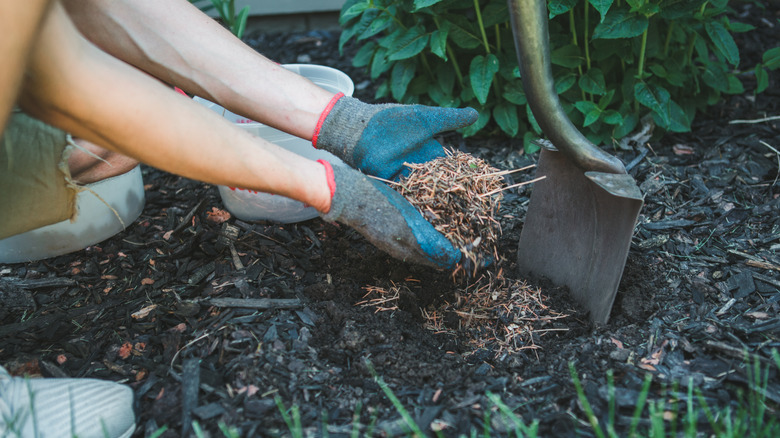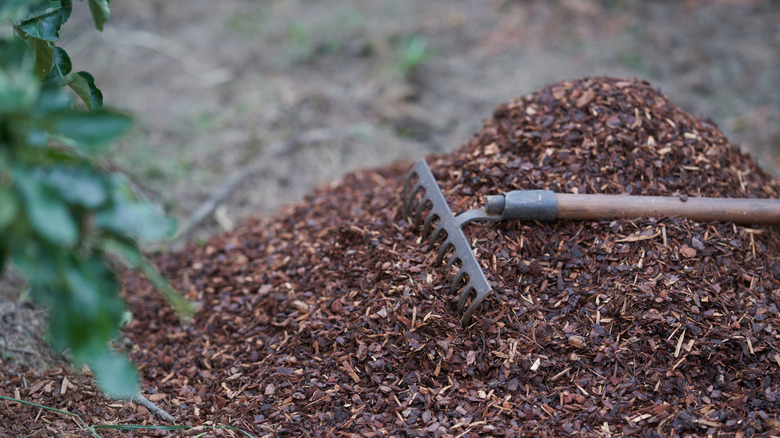What Is The Purpose Of Mulching Your Garden, And Why Should You Try It?
We may receive a commission on purchases made from links.
Mulching your garden serves as more than just a way to make your landscape look tidy and well-maintained. The real value lies beneath the surface — quite literally. Mulch acts as a protective barrier for your soil, which helps regulate temperature and moisture levels. Mulch insulates plant roots, keeping them cool in the summer and warm in the winter. This simple layer keeps the soil damp longer by slowing down evaporation, meaning you won't have to water your garden as frequently. It also shields your soil from hard rain that can wash away vital nutrients, allowing plants to thrive with less intervention.
A lesser-known benefit of mulching is its power to prevent weed growth. By blocking sunlight, mulch minimizes the chance for weed seeds to germinate, saving you from endless weeding sessions. But mulch can't last forever. Over time, it breaks down, and while it may look like there's some left in your flower beds, failure to replenish it could mean more weeds and less moisture retention. Reapplying mulch every couple of years ensures you continue enjoying these benefits without a lapse.
Organic mulches like wood chips and shredded leaves decompose and contribute nutrients to your soil, while inorganic options, like gravel or landscape fabric, primarily function as weed barriers. Either way, the goal is to give your plants the best possible environment to grow. However, using too much mulch can have the opposite effect. Too thick of a layer suffocates roots and blocks the air from reaching the soil.
Balance is key when applying mulch
Mulching may sound simple enough, but there are a few common mistakes that can cause more harm than good. One of the most infamous errors is creating mulch volcanoes — piling mulch up against tree trunks or plant stems like a cone. Mulch mounds lock in moisture at the base of the plant or tree, leading to bark damage and, eventually, the death of the tree. Mulch should always be spread evenly and kept away from direct contact with stems and trunks to avoid moisture buildup that promotes disease and pests.
Another mistake to avoid is improperly mulching fallen leaves. Many people assume mulching leaves is always good for lawns, but if the leaf layer is too thick or not mulched finely, it can smother the grass and damage your yard. If done correctly, mulching leaves into tiny pieces can nourish the soil as they decompose, but when done poorly, it's an invitation for lawn problems.
Adding a layer every couple of years will keep your garden in peak condition. Keeping your mulch at an optimal depth, typically two-to-four inches, and refreshing it as needed will give your garden a major advantage in terms of both aesthetics and plant health. So, while mulching may seem like a small, routine task, it plays a vital role in maintaining a healthy garden. When properly applied, mulch can transform your gardening experience, leading to healthier plants, fewer weeds, and a thriving ecosystem just beneath the surface.

